We are only a week after two major events in the Anglophone sphere: the Super Tuesday and the meeting between Donald Trump and the leader of a small Central European nation, Viktor Orban. Trump praised Orban by saying: “He’s a noncontroversial figure (…),” and “He’s the boss”? On the other hand, why do the so-called illiberal leaders like Orban think of Trump like a messiah to the world?
We asked Gladden Pappin, the President of the Hungarian Institute for International Affairs. Pappin, a Hungarian-American dual citizen, was born and built his academic career in the USA. He received three degrees from Harvard University, including his bachelor’s degree as well as a PhD in government. He is also an associate professor (on leave) at the University of Dallas. He co-founded American Affairs in 2017, the most prestigious conservative journal of public policy in the United States, and the Postliberal Order Substack in 2021.
As an American living in Hungary, what do you think, what are the factors connecting Donald Trump and Hungarian Prime Minister Viktor Orban? It seems they have a strong working and personal relationship, something quite unheard of between a smaller power and the U.S.
Well, President Trump and Prime Minister Orban both represent a conservative alternative for the West. I think, this is what is so challenging about Hungary for the people. It’s a Western country, also part of the European Union. But it’s maintaining things that a lot of other people have left behind. Hungary is a country founded on national identity and national sovereignty and its fighting for these values. And Trump is also a fighter. So there’s a natural connection there. Unfortunately, the United States has become very politicized in its diplomatic approach under the Biden administration. The Trump-Orban meeting shows that there can be a strong and good relationship between the two governments. There is a strong relationship between the two peoples and lots of realm for cooperation. It doesn’t have to be this aggressive diplomacy that, unfortunately, we’ve currently seen from the U.S. I’m an American citizen, and it’s embarrassing to me to see these constant attacks on Hungary.
However, the Biden administration’s goal is to promote the “World of Democracies” concept. So it’s safe to say this kind of diplomatic approach is not just towards Hungary in general?
Yes, the U.S. has become very ideological in its global stance. In the 1990s, everyone thought that it was going to be an American-led, unipolar, liberal world order forever. Actually, that would be great. I mean,
the U.S. was a very positive influence on the world stage in many ways. But in recent years, its approach has become very ideological and a bit narrow-minded, which leads to bad decision-making.
Now, Washington is often using this form of ideological pressure rather than providing investment or building infrastructure, for example. The Chinese are offering investment, building things, starting companies, and they don’t really pressure people. You can say that that’s good or bad, but I think that the West has to have a more practical approach to this more intense competition on the world stage.
In connection with the changing environment you mentioned in your interview that you gave to Hungarian publication Mandiner: “The liberal assumption behind the post-Cold War order won’t be guides going forward.” Does this mean that the liberal world order no longer exists, and we have to throw away the whole concept?
Well, let’s focus on the foundations and make sure that the institutions we have, the laws, the politics, all the institutions that we’ve built, have a strong basis. So it’s not about throwing out all the institutions, but the institutions have their mindset gone too far to the left.
These institutions, whether it’s the universities or the financial system, or big companies in the West, they all have this very ideological mindset.
It’s not about throwing those things out, but it’s about making sure that national sovereignty, international identity, and conservative principles are basically guiding these things, and they shouldn’t be weaponized. For example, what happened after the beginning of the Russian invasion of Ukraine is that the Western financial system became weaponized on a political and military basis.
Do you think that it was a wrong reaction on the part of the West?
First of all, it destroyed a lot of trust in the neutrality of Western institutions. Especially for the U.S. dollar system, a lot of countries have kept their foreign currency reserves in U.S. dollars.
But if the U.S. might exclude you from the banking system due to a geopolitical difference, then you, a country, will think twice about your exposure to that system.
Therefore, the dollar system is part of the West’s supremacy, but it’s undermining the trust in it. The reason why it was a bad decision is not that there should be no response to a violation of international law, but it’s a self-undermining way. Because Europe chose to drive its own energy prices higher. And the West put its own financial system at risk. The decision-makers weren’t thinking through the consequences of those actions. Maybe there was a better way.
We already discussed the liberal order and its problems. Let’s explore what liberalism and conservatism mean to you.
Well, it’s really about what you want to do with your society and what makes it strong and helps it to survive and thrive. And the answer of liberalism is you have to leave your national identity behind. We have to adopt every new lifestyle. There should be no borders instead there should be one global consumer culture. Traditions don’t matter, and Christianity is outdated. And these things have weakened societies. For example, people in Western Europe no longer want to die for their countries, and if a war happens, well, that’s very dangerous. In my opinion, liberal tendencies are pulling society apart. On the other hand, conservatism is a different answer.
Of course, conservatism is different in different countries, but the idea is (that) society is a very complex phenomenon that has grown together over time, and you’d better not mess with it too much, because the results might be disastrous.
So it’s better to keep what we have and not fiddle around too much. For example, don’t tackle the traditional family as a norm, and don’t attack borders and national identity. Don’t label everything as racist, sexist, bigoted and etc.
Liberal values are often associated with concepts like freedom, mostly personal liberty, but even minority freedom. What is wrong with these achievements?
Well, there’s a conservative basis for all of those things. Yeah, I agree, there should be freedom in every society. But where does it come from? Freedom doesn’t mean that one is being dominated by outsiders, for example.
Also, are you freer by getting married or by pursuing an individual life of pleasure? The conservative answer is that there’s more freedom in a society with marriage because it’s strong and it can defend itself.
The liberal answer is that marriage is a tyrannical institution that should be destroyed ultimately; of course, I’m talking about the extreme version of this opinion, but it still exists. So, this is about the mindset.
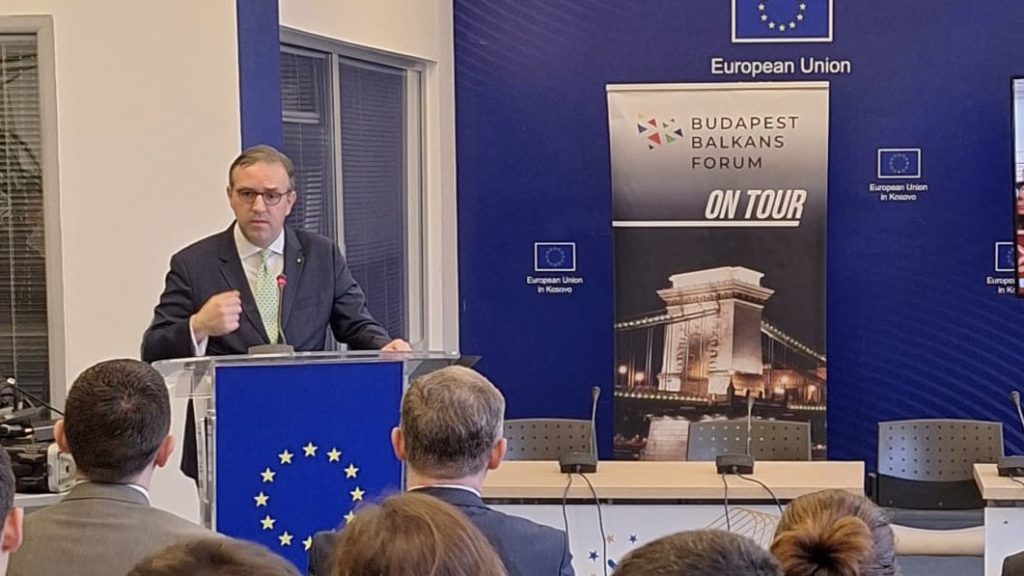
Gladden Pappin (Source: HIIA twitter)
You also referred to the need to halt the globalist elite in an Economist interview. You said “(the) Conservatives felt that liberal globalism was a kind of divide-and-conquer ideology.” But who will be these counterparts? How do you rebel against the elite if you belong to the elite? Is it not a contradiction?
In my view, every society has leaders.
But the question is, are they really trying to represent the popular interest? Or has the elite become detached from reality?
In the area around Washington DC, there has been no economic decline. Many of the people who live there are detached from the realities in the rest of the country. Trump, as a leader, is part of the New York elite, it’s true. But he had a better sense of the situation for ordinary people. That’s why the elite from Washington were so angry about Trump. The problem is the same in Europe, Brussels has become its own separated entity. And oftentimes, they don’t care what ordinary European people think. So, we have to develop this mindset that a good government serves the people and tries to keep things in a conservative and popular direction. Basically, you can have good leadership, or you can have bad leadership. In my mind, good leadership should be conservative but also popular.
Let’s discuss Trump and his proposed foreign policy. Is it fair to assume that Europe should be afraid of losing its American protection if Trump wins in November? The former president encouraged Russia to “do whatever the hell they want” to any NATO member who did not spend two percent of their own GDP on defense. Is this a good wake-up call for Europe, or only a warning that we might be alone in a possible conflict with Russia?
It is definitely a wake-up call for Europe, which has been exclusively relying on the U.S. for its defense. Europe is choosing a very, very impossible path right now. If Europe wants to defend itself, if we want to develop the defense capacities of Europe, we need cheap energy, we need strong industry, we need connection to the rest of the world.
The EU made a bad decision to become militarily involved in the war for a potentially unlimited period of time and unlimited cost. Brussels did that on the assumption that the U.S. would always be there. But the attention of the U.S. is very easily distracted.
Meanwhile, support for the war effort in Ukraine is becoming less popular among ordinary American people because it’s very expensive for them as well. Right now, under the Biden administration, the people are outraged that the U.S. is spending so much money on the war effort and Ukraine while not being able to take care of their own borders, which have been wide open.
It is common to hear about how U.S. power projection capability has declined. Washington’s positions are so weakened that many of its allies are afraid they will be alone if the U.S. becomes more isolated. Japan, South Korea, and some Eastern European countries feel this way. If Trump is elected president, will he provide stronger leadership? Or will America retreat from international politics again, as we witnessed in his first term?
Well, I think that we can say that the Trump presidency was very peaceful. He had this very practical mindset in his approach to foreign policy. I consider he was also a bit unpredictable. So I suppose other world leaders were careful around Trump. I think this is what we could hope for in a Trump presidency: a more peaceful diplomatic approach. I also consider that Trump wants to build up American industry.
All in all, the U.S. could focus on investment and peace in the possible next term of Trump. That would be my hope for U.S. foreign policy.
Do you think that Trump needs to make an adjustment in his foreign policy because the world is more complicated than it was in his first tenure? There are two hot wars and countless frozen conflicts.
Chiefly, American support for the Ukraine effort will become more difficult, and there may be a rebalancing or a refocusing of American attention under Trump. Thus, we could prepare for a more peaceful world. Trump was the first president to challenge the ‘forever wars’ of the Bush and Obama administrations. Thus, there is no doubt he has this instinct for peace. Prime Minister Orban does as well, very uniquely on the world stage.
Finally, let’s talk about Hungary. Prime Minister Orban said last year at the 50th anniversary of the Hungarian Institute of International Affairs, which you are presiding over, that “if a country with no relative advantages wants to have an independent foreign policy, it must take a radical position”. What radical stances did he refer to?
Hungary is a very unique country in its size and, its location, and in the direction that it’s going. So it’s not enough for Hungary just to go with the flow. If you go with the flow, if you go with the rest of the European flow, then you’re going to lose your own identity. And if you chart your own path but you don’t tell anyone about it, then no one will understand.
So it’s also important that Hungarian foreign policy is about Europe as well. So it’s an alternative vision of what the rest of Europe could be like as well.
What if we had a Europe that respected its member states more, that had a greater place for Christianity and public culture? What if the rest of Europe also took migration as a serious threat? So these are things that are not just important for Hungary, but that are important for the rest as well. This is the approach that we are trying to articulate on the international stage, which is really important. Ultimately, it comes down to peace, security, preserving oneself, and maximizing economic opportunity for ordinary people. So these are the elements what makes up this new kind of foreign policy. For me, I have an American phrase for that, “survive and thrive” – if you can survive, you can thrive. So these are actually the things that the Hungarian government is trying to do. It’s trying to maintain the Hungarian identity, have a strong connection, and start to rebuild the military and defense forces of Hungary. It’s complicated, but I think a Trump presidency would be beneficial to all of these.
It’s the 5️⃣0️⃣th anniversary of the Hungarian Institute of International Affairs!🇭🇺
I observed that Hungary chooses to be connected & strong, based on our national interest.
Joining the celebration are @BalazsOrban_HU, Péter Szijjártó &, coming this afternoon: @PM_ViktorOrban!… pic.twitter.com/IWGpafr6z8
— Gladden Pappin (@gjpappin) December 4, 2023
What if Joe Biden wins in November? Wouldn’t this strong support from Orban towards Trump damage the relations between the two countries irreversibly?
No, because the baseline from the Biden administration has already been a bit harsh. Actually, there’s a lot of discontent about that, even in the U.S., where Hungary is now better-known among American conservatives than most other similar countries.
So, I think if Trump didn’t win, things wouldn’t get worse. Actually it’s important to show that American diplomacy right now is not just standard diplomacy, something very unusual and out of place. And this is how we show that by showing that there is an alternative and that there’s a basis for a good relationship. Hopefully Trump makes it to the White House, and if he does, then there will be a very strong basis. Of course, Hungary is ready for a good relationship with every partner. So, the request is that the Biden administration also shift to a non-interfering and more productive relationship.

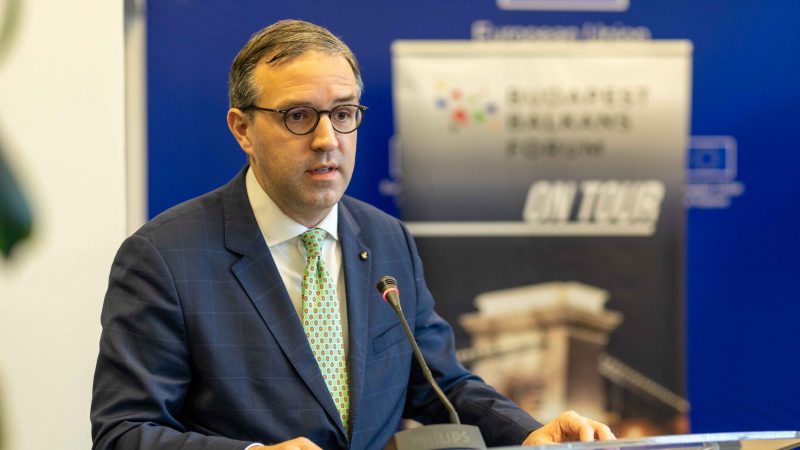
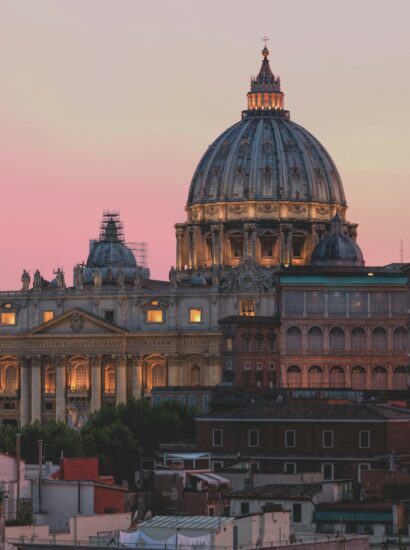
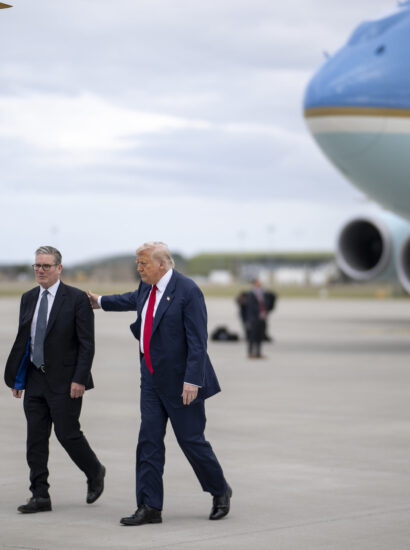
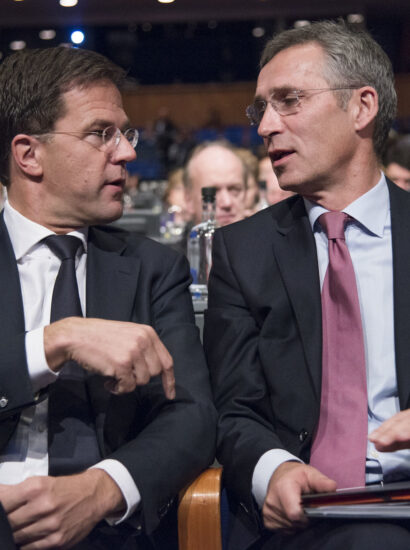
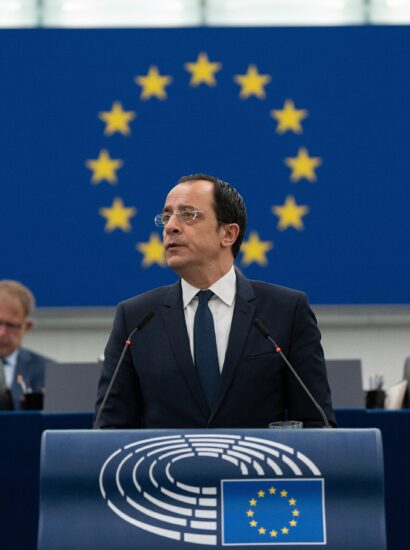
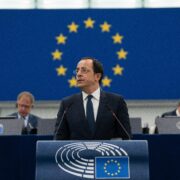

[…] the political scene in Europe. In this regard, he spoke about the “populist revolution”, a populist movement that wants to bring back transparency in Western democracies and bring back control. Hume […]